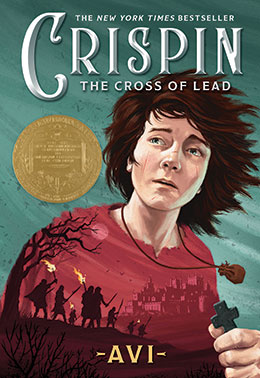
After half a year of work, I sent a new manuscript to my editor. It was far from being totally done, but it was a good start. More than that. I liked it. I was so confident that—while waiting for her response—I began working on another book that I had contracted to write.
After I sent the book in, I, as usual at that stage, read the draft to my wife. She made some good critical comments but, on the whole, her response was positive. Also, as per usual, I shared the book with a writer friend who, over the years, has been a singularly insightful critic. When she got back to me, her comments were also positive. Her critical remarks made sense.
In short, I was feeling good about my work and had the reasonable hope that once my editor got back to me with her suggestions, I could finish the book in decent time.
But when the editor did get in touch with me, she was not happy with the book. I long, long editorial letter started off (briefly) with the book’s strength but spent far more time telling me about the weaknesses of my work.
I confess I was completely surprised.
 There are all kinds of ways to respond to this kind of situation. You can throw up your hands, and then throw away the book. You can offer the book elsewhere because, after all, editors are not infallible. Books that I have written that were not accepted by editor A, have done quite well with editor B. My Newbery book, Crispin, was dropped by one editor but picked up by another. The number of times A Wrinkle in Time was rejected is legendary.
There are all kinds of ways to respond to this kind of situation. You can throw up your hands, and then throw away the book. You can offer the book elsewhere because, after all, editors are not infallible. Books that I have written that were not accepted by editor A, have done quite well with editor B. My Newbery book, Crispin, was dropped by one editor but picked up by another. The number of times A Wrinkle in Time was rejected is legendary.
But if you respect your editor, you owe that person and yourself a time for deep reflection and careful judgment. I do allow myself a bit of sulk (twenty-four hours is generally sufficient), but then I reread that rejection letter many, many times, and beyond all else, think, think, think.
In the end, I had to acknowledge that my editor was right.
What to do? Time to rewrite.
It’s easy to say that. However, to take a book you have written, and liked, and then turn it into something else, is difficult, to say the least. I need to spend a lot of time thinking, and rewriting the book in my head, not on paper. What I try to do is identify the key moment in what I had written—in which the book took a wrong direction, and then pivot toward a new direction.
It’s a slow process. Bit by bit things change. Most importantly, bit by bit my grasp of my story changes, my understanding of the characters change, the whole book shifts.
That has been done. Now I will read it to my wife … I will give it to my writer friend … I will send it to my editor and then … wait and see her reaction. Will she say, “Perfect. Done!” No. But hopefully, she’ll say. “Better. And here are my thoughts …”
So it goes.
Is there a moral in all this? Praise is not always the writer’s best friend. Humility in the face of criticism is one of the best things a writer can have.
6 thoughts on “Work in process”
Avi, your introspection and humility inspire me. Thanks for sharing these important life lessons when I next “fall off my bike” and need a new outlook and start. Write on!
Well said, Avi.
Thanks for sharing this, Avi. As a master writer of children, young adults and beyond, it’s a great thing to communicate, that success is not something we automatically acquire, but something in which we have to put in the work, sweat, and time. But I must say you do have the wisdom, talent, and perseverance to have made your writing career take off and not look back.
Sharon O. Blumberg
http://www.sharonoblumbergauthor.com
As an (amateur) writer, I identify with your experience. Constructive criticism may hurt at first, but we grow from it. I love your writing, Avi, especially your book, Crispin. I read it thirty years ago and it came back to me in my retirement years when I traveled in Europe and researched my ancestors. My grandmother’s lineage shows how power corrupts the church and descendants of kings are not necessarity well-placed in society.
Thank you for the wise words.
I never thought of you facing doubt and criticism. TY for the insight 🙂